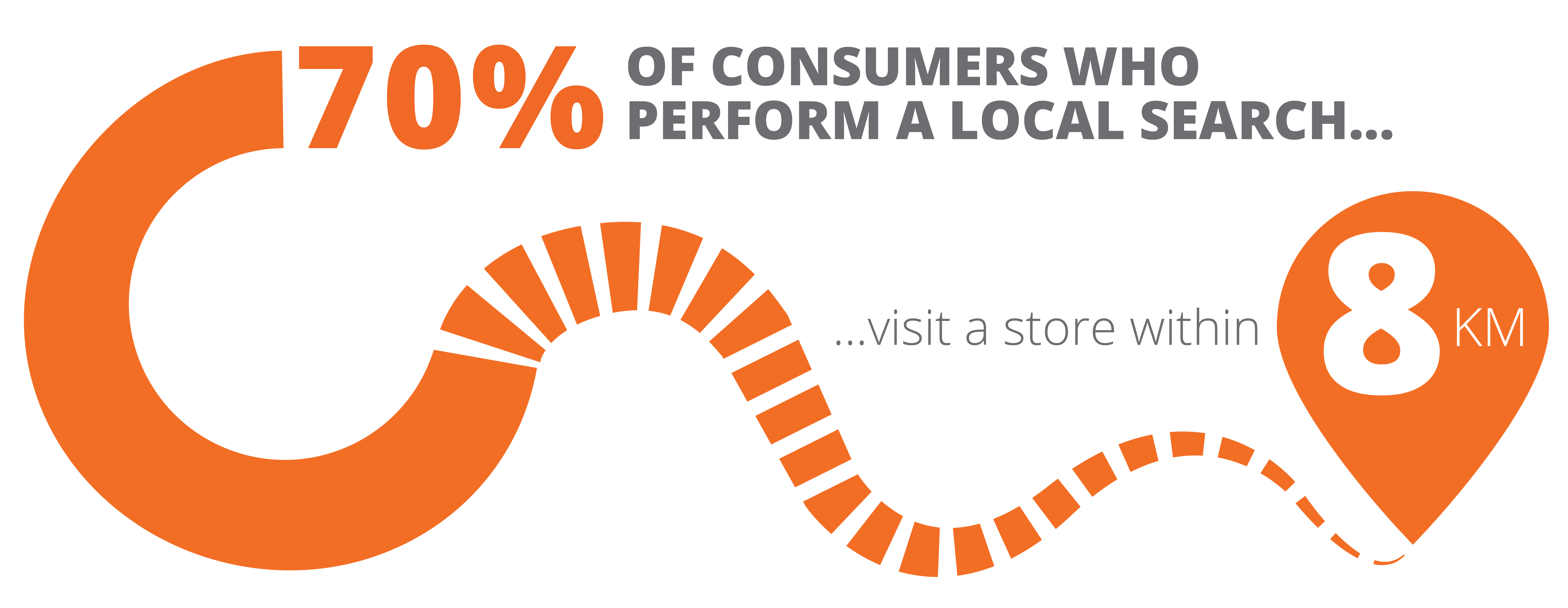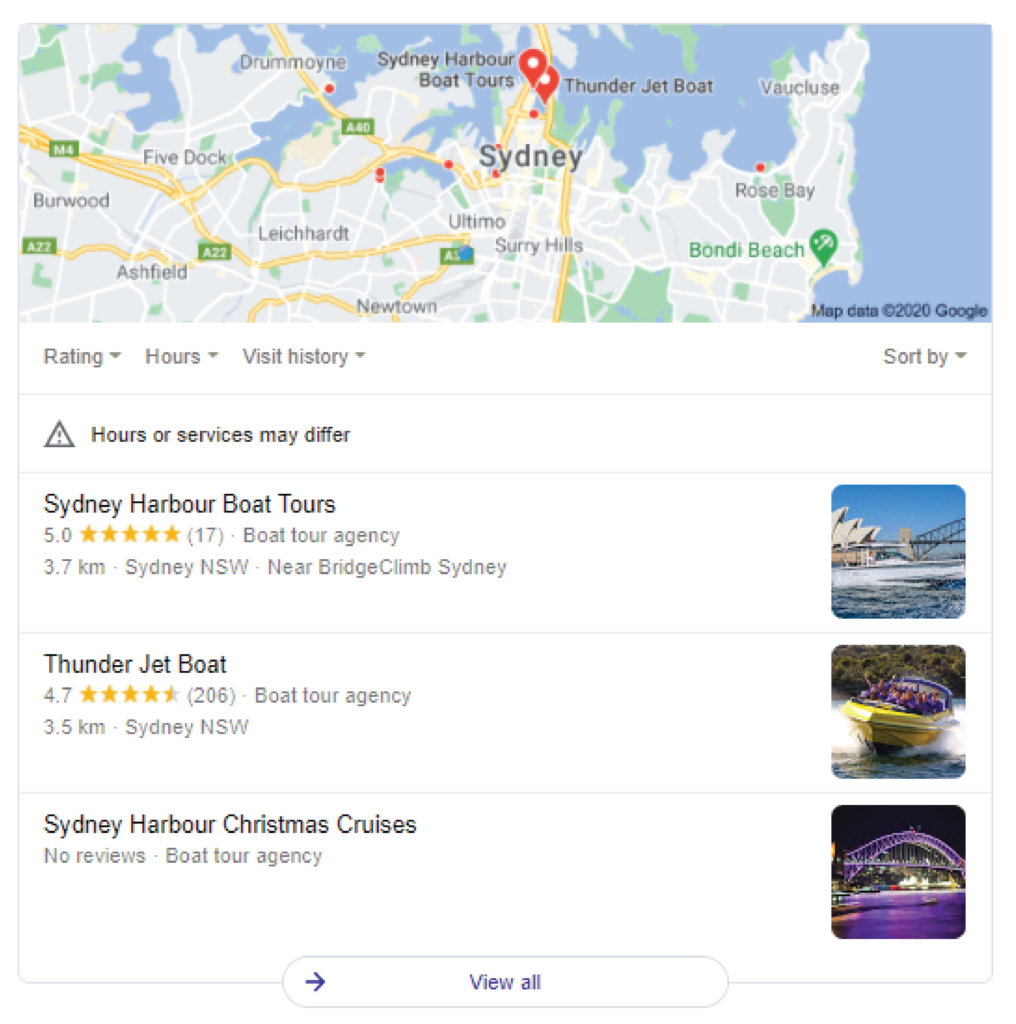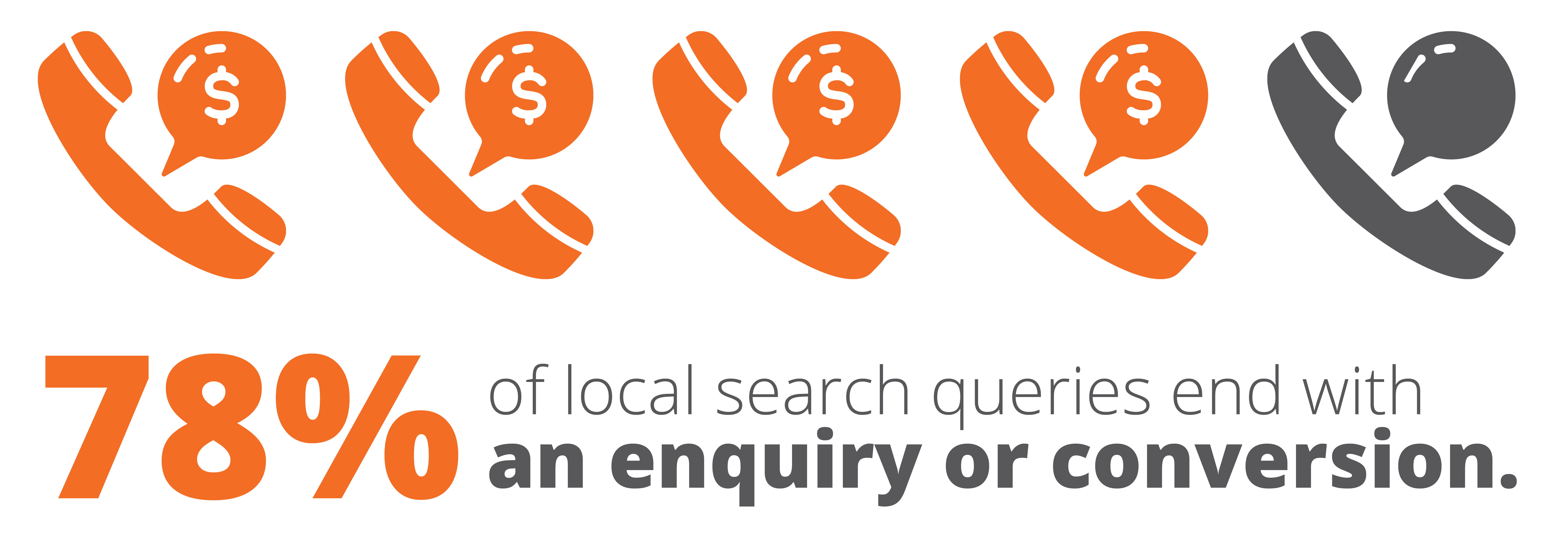Focus on Local SEO over Keyword SEO to Drive Economic Impact
While keyword optimisation will always be an integral part of a comprehensive search engine optimisation toolkit, it’s just the tip of the iceberg in the world of SEO.
Most initiatives to improve visibility on search engines tend to fall into one of three categories:
- Technical SEO: optimising website pages to be easily crawled and indexed by search engines. Think fast load time, mobile-friendly, search engine friendly technology, and solid information hierarchy.
- On-site/Content SEO: optimising content to provide the best and most relevant answers to key target audience questions. Think keyword research, page titles, meta descriptions, and UX.
- Off-site SEO: maximising authority to encourage prioritisation by Google. Think back-link strategy and valuable content.
While all of the above will help to maximise visibility, when it comes to capturing and converting highly lucrative audiences who are ready to purchase, the most important—and often unsung—strategy is local search optimisation or Local SEO.
What is ‘Local SEO’?
Local search has been around for a number of years but has been pushed to the forefront of importance for marketers and businesses alike as users increasingly search on-the-go from mobile devices.
According to Google, 46% of all searches now have a ‘local intent’. Optimising for these specific searches not only increases business visibility in featured local search results, but it also places businesses directly in front of a motivated audience with intent to purchase.

The key difference between a local query and a keyword query like ‘Where should I travel domestically this year?’ boils down to search intent. Searches such as ‘coffee shops near me’ or ‘cafes in [destination]’ signal that users are on the brink of converting and ready to buy.
Think with Google states that 18% of local smartphone searches led to a purchase within a day compared to only 7% of non-local searches. The significantly higher conversion rates associated with localised queries underscores their importance to businesses that need to move the needle quickly as they work to recover. Something those of us in tourism understand all too well.
Even for searches that don’t include a specific location, or ‘near me,’ Google assumes a preference for businesses close to the searcher and calculates proximity and relevancy of all indexed Google My Business (GMB) listings in order to provide what it thinks are the best options. These suggestions are listed before the organic results and are referred to as the ‘snack pack’, the ‘local pack’, or the ‘native pack’.

92% of searchers select businesses on the first page of local search results.
Whatever you call them, these local results pull key pieces of information from Google My Business listings including reviews, ratings, opening hours, and contact information. And, they’re not just valuable, they’re powerful. According to one study, 33% of clicks go to local ‘snack pack’ results and 40% go to organic results. In other words, to ensure the best organic results from Google, just one strategy just isn’t enough.
Local SEO vs. Keyword SEO
Generating nationwide search visibility is an uphill battle for small businesses. Many of the top search terms and keywords are already owned by big, established brands with significant resources and digital marketing funds. When faced with this challenge, the opportunity for local businesses is actually less about being #1 for every keyword or query, it’s all about being represented for the queries that will have the most business impact.

Recent data indicates that 78% of local search queries end with an enquiry or conversion. To put that in perspective, a click from a local search yields a 4 in 5 chance of commercial impact. Think of Local SEO as free advertising that’s focussed on people who are most likely to become customers. No fancy marketing targetting required.
By establishing a solid local optimisation strategy, businesses can take control of their region while quickly, and sometimes dramatically, increasing the quantity and quality of organic leads driven by Google. The first step is having a top-quality, accurate Google My Business listing.
The New Yellow Pages
Once upon a time, people used to go to their trusty Yellow Pages to find business information. Today, these consumers are turning to Google. And, while a business would never allow their address or phone number to be incorrectly listed in a traditional directory (not happy, Jan), there’s less attention being placed on their Google My Business listing, the holy grail of Local SEO strategy.
That lack of attention can sometimes carry a serious commercial impact for the business, as shown in these stats from Bright Local:
- In the last 12 months, 71% of consumers had a negative experience because of incorrect local business information found online
- In the last year, 22% of consumers visited the wrong location for a business because the address was incorrect online
- 80% of consumers lose trust in local businesses if they see incorrect or inconsistent contact details or business names online
- 68% of consumers would stop using a local business if they found incorrect information in online directories
But, we just can’t end on a negative note. While there’s no doubt that inactivity or “letting it be” is the wrong move, SEO Tribunal shows that even a small investment into Local SEO can supercharge business visibility and revenue.
- After making a local business search on a mobile device, 88% of consumers will either call or visit the business within 24 hours
- 70% of consumers will go to a store because of the information they find online.
- 73% of consumers trust a business after seeing that it has positive reviews.
It’s these kinds of results that local businesses need right now.
Need a hand?
Tourism marketing expert Gate 7 provides a turnkey solution that audits and activates Google My Business listings for your local economy or tourism operators in just three months. The Digital Destination Optimisation Program has been successfully implemented in 160 destinations worldwide, assisting in excess of 70,000 individual businesses. It’s a smart way to drive serious value to your local business community while giving them have a strong Local SEO foundation to build upon.

